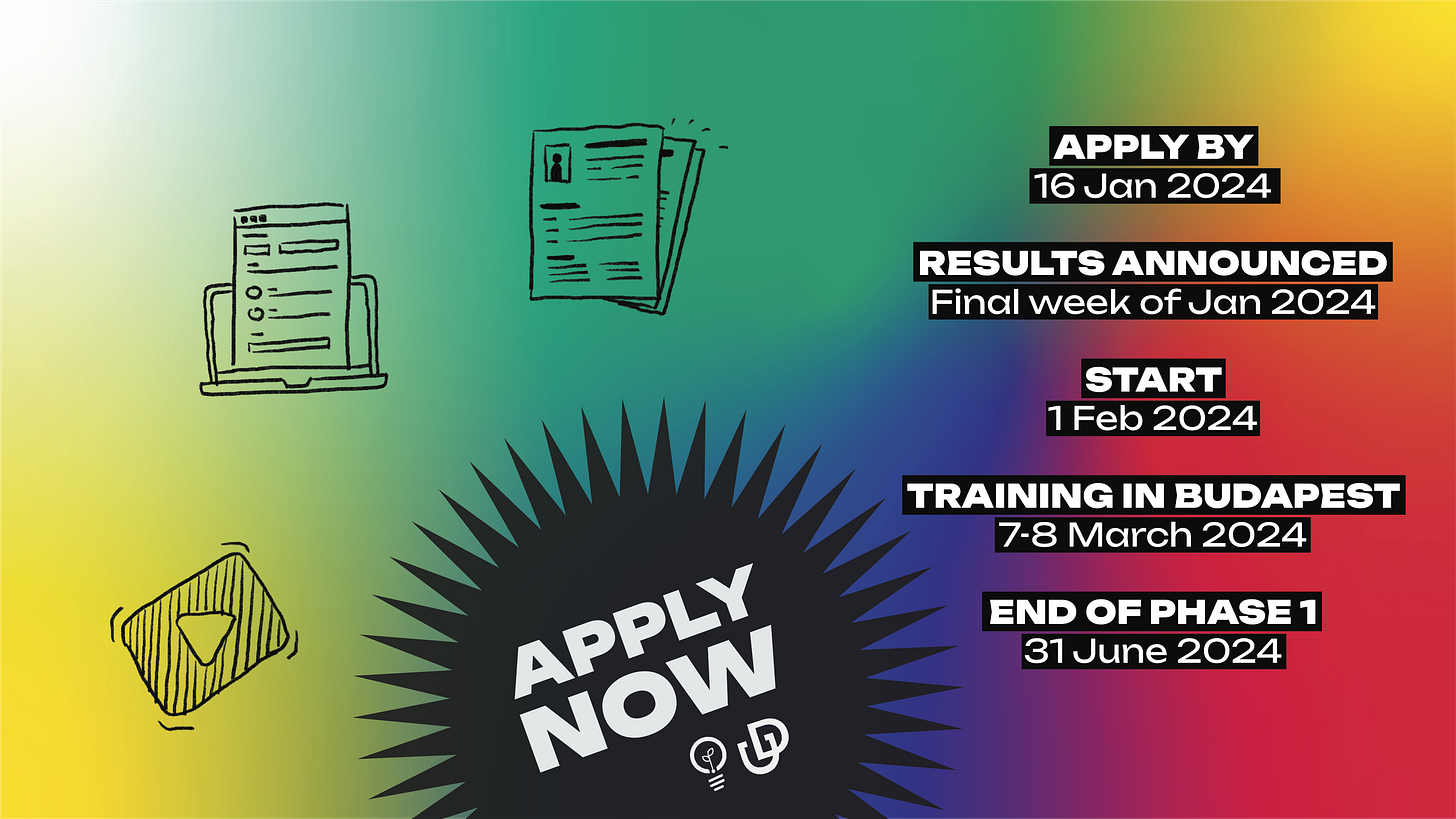Yesterday we launched a new kind of hope-based course with pro-democracy group Unhack Democracy. The goal is to help rising civil society leaders from Hungary, Poland and Bulgaria embrace a mindset shift to improve their effectiveness and become better at selling MORE democracy.
In this post, Zsofia Banuta explains the idea behind the course, and why this matters more than ever.
Rewire your mind, rewire your country
by Zsofia Banuta, co-founder, Unhack Democracy
When people ask me where I’m from I tell them, ‘I’m Hungarian by blood and suffering and European by values’. Having lived most of my adult life outside of Hungary, where societies embraced pluralism, cooperation and ordinary people initiated change from the ground up, I always strived to learn and enjoy seeing how things evolved for the better. This is why it is especially painful to see my home country in a state of depression, isolation, on a path of self-destruction and ultimately slow death without an obvious solution.
But there are people, who still fight for change and keep hope alive, actively looking for the answers in the face of a brutal state capture. These are civil society leaders, often faceless and unknown, who have already been carrying an incredible burden and now face even more pressure than before to lead the way to create the desire for change from the ground up, and a shared vision to aim for in the absence of a credible opposition.
I am one of them. I know how difficult it is when you also need to fight for your own survival without sustainable funding, increasing red tape in a hostile environment, while motivating your team and community.
We are democratic entrepreneurs, changemakers, who require a lot of energy, discipline and infinite self-belief to keep going. It is also a very lonely journey.
Unfortunately, in the case of Hungary a democratic culture was never embedded in our society and we are paying a huge price for it now. Even now the importance of civil society is underestimated, just when we need it more than ever for systematic change and it is being targeted by the Orban regime.
On 12 December, Orban's supermajority passed the “Sovereignty Protection Law” which targets any organisation or person it suspects of serving foreign interests and jeopardising Hungary’s sovereignty. This mirrors similar Russia-style “foreign agents” laws whose real objective is to deter and intimate civil society and the media.
But the problems of Hungary don’t stop at the border. Ukraine is engaged in an existential fight against authoritarianism. Democracy is at a crossroads across the continent; authoritarians are swaying courts, and propagating fearmongering narratives through capture media, while the economy is working in a way that undermines democracy, concentrating power in the hands of a few.
We need bold and systemic solutions that can only be addressed together but the EU seems unwilling to do this. On the same day Hungary passed its new sovereignty law, the EU adopted its own foreign funding directive which will be deeply harmful to democracy, while doing nothing to stop its stated intention of exposing covert foreign interference in policymaking.
The next two to three years will determine the course of the next few decades for democracy in Europe.
There is a narrow window of opportunity to defend the democratic values from the bottom up by improving the way civil society works together, turning hope into action and selling a positive vision of democracy.
We need to co-create that vision from the ground up with our communities and make it happen.
Our job is to help people ‘dream what they should be dreaming and demand what they should be demanding’.
This is why we at Unhack Democracy along with Thomas Coombes, founder of Hope-based Communications are starting the REWIRE incubator, which will give 15 participants from across Hungary, Poland and Bulgaria the training and tools needed to build new powerful stories to become better at selling MORE democracy.
Our new method draws on psychology to help activists focus their work on their values and their vision of the world they want to live in. We will support participants to embed a positive behaviour change within themselves, their organizations and wider societies by introducing inspirational ideas, and to manage stress better.
If you cannot see, you cannot become it.
If you are a civil society activist in Bulgaria, Hungary or Poland with a bold vision for your community apply to the REWIRE incubator by 23:59 CET on 16 January 2024 to become the change you want to see.
Zsofia’s article us also published on the Unhack Democracy website and Medium. Follow her on LinkedIn. Thanks also to the Recharging Advocacy for Rights in Europe (RARE) programme where Unhack and hope-based comms met for the first time :)
Sign up for the Activist Book Club
In the spirit of embracing new strategies to counter authoritarianism, the current reading in the Activist Book Club is Saul Alinsky’s Rules for Radicals. Written in 1971 in the midst of the Vietnam War, it somehow feels incredibly relevant today. But don’t take it from me, here is what Kathryn Sikkink says about him:
“As community organizer Saul Alinsky reminded activists decades ago, pessimism and anger are not sufficient to maintain motivation over time; you also must have hope to believe that you can make a difference.”
The call takes place on Jan 19, 2024 at 15:00 CET / 09:00 EST, so you have plenty of time for this inspiring holiday reading.
hopey, changey stuff
The Narrative Initiative has a brilliant new series of stories on grassroots activism called Field Notes. And they are taking submissions!
Suparna Choudury is exploring how we can use culture to navigate hard times and liberate our imagination. You can submit your problems/wishes to the Poetry Clinic, a very cool and creative initiative that you can also follow on Instagram. Suparna is an interdisciplinary researcher and writer with a phd in neuroscience, and also an expert on hope so expect to see more from her on these pages!
hope-based communications has signed up to the Meaningful Refugee Participation pledge from the Global Refugee-Led Network - an initiative we think is worth your support. Please share their work and consider signing your organization up too.
An example of how refugee-led work is inherently hope-based is the rebranding process that saw the American Refugee Committee become Alight: we think this is a textbook example of #branding that every social change organization can learn from. We also wrote about the importance of refugees being the strategists, not just the subjects of stories, in this previous substack.
What’s making us hopeful
Women-centred history and classics: Emma Southon’s A History of the Roman Empire in 21 Women and Jennifer Saint’s trilogy of Greek myths centred on female characters Ariadne, Atalanta and Electra. They make you think differently about history but also happen to just be great reads!
Quote of the week
Almost skipped this part but then Ishtar Lakhani came to the rescue with this one from Andrea Lunsford:
"It’s crucial for us to reject single stories, along with master narratives of all kinds, and rather to pursue what I am calling narrative justice. I don’t see how we can achieve social justice if the narratives in which people are trapped and silenced simply will not allow for it. So we need just narratives, which can then lay the groundwork for and make possible social justice."










